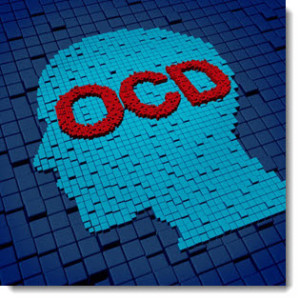I took on a new client, Bob, last week who has all the signs and symptoms of chronic OCD. The disorder, via his self-report, has manifested in different ways over many years, but here’s a recap of the latest occurrence that brought him to treatment.
He owns a condo in a rather nice building in New Orleans. His next-door neighbor, who was an offsite owner and only occasionally came to town to use the condo, recently rented the property. The lessee lives in the unit full-time and according to Bob, can get annoying and infuriating at times. The complaints and concerns include television volume, loud talking and get-togethers with visitors that get boisterous on occasion.
 I asked Bob how he was adapting to and handling this new situation. He stated that since he works from home, he is able to monitor the “activity” rather closely. He mentioned that he has taken to listening at this person’s door for loud conversation or music or anything else annoying or off-putting that might invade his space next door. He went on to say that doing this is complicated, because although he believes this new neighbor works, he can’t get a handle on his schedule. He has also purchased several “white noise” machines and has spaced them throughout his unit to block any “invasions,” as he put it.
I asked Bob how he was adapting to and handling this new situation. He stated that since he works from home, he is able to monitor the “activity” rather closely. He mentioned that he has taken to listening at this person’s door for loud conversation or music or anything else annoying or off-putting that might invade his space next door. He went on to say that doing this is complicated, because although he believes this new neighbor works, he can’t get a handle on his schedule. He has also purchased several “white noise” machines and has spaced them throughout his unit to block any “invasions,” as he put it.
Obsessive-Compulsive disorder is a cyclic thought and behavioral process whereby the affected individual harbors obsessions concerning safety issues, possible contamination, scrupulosity, a need for order, and in this case, thoughts of being intruded upon — to name but a few. As a way to allay the fear and anxiety generated by such thoughts, the person employs behaviors such as constant checking (to offset safety concerns), handwashing (to ward off contamination), engaging in daily personal penance or confession (to address scrupulosity), persistent rearranging of objects (for perfect order) and the use of devices (to mitigate intrusiveness).
Best practices for assisting people with OCD focus on consistently exposing them to the situation that fuels the obsessions, accompanied by strategies aimed at curbing the behaviors that rather naturally accompany these obsessions — which started the whole vicious cycle in the first place. In the hands of a competent behaviorist with hands-on knowledge and experience with OCD, symptom reduction is highly attainable — 75 to 80 percent of those affected show measurable improvement. Medication such as SSRIs have the capacity to sufficiently numb symptoms temporarily, but not long-term. Those with OCD have to literally unlearn and eventually arrest the counterproductive thoughts and actions that interfere with living more relaxed and at ease.
In what served as an appointment, I visited Bob’s condo on a night when he confirmed that his neighbor was at home. I asked Bob to silence all of the sound screens so that I could listen for anything particularly intrusive. I sat for one hour and heard nothing of consequence. I checked in with Bob every 10 minutes during this hour and he confirmed hearing very little also. He did interject this: “Joe, you just happened to come by on an unusually quiet night.” That may be, but I doubt it.
The two of us sat together for another few minutes and I counseled him thusly: He can listen through his neighbor’s door (and possibly be reported to his condo association, entirely another matter,) and he can use umpteen sound blocking devices or turn his unit into a concrete-laden bunker; but such tactics completely fail him if he’s not living any more peacefully. I went on to say that it’s possible he wants to hear something unwanted and undesired because this validates the actions he’s taking — actions that have had no impact on the cycle of misery dogging him.
OCD sufferers have to come to terms with the lack of certainty associated with daily living and that what’s plaguing them is so often of small proportions — driven by imaginary fear.
OCD-affected people hate surprises. If Bob stays with me, I’ll teach him ways to defang these annoyances and view them as no more than the vagaries of life that we all experience, to some extent, day in and day out.
Reprint Permission
Attribution Statement:
Joe Wegmann is a licensed pharmacist & clinical social worker has presented psychopharmacology seminars to over 10,000 healthcare professionals in 46 states, and maintains an active psychotherapy practice specializing in the treatment of depression and anxiety. He is the author of Psychopharmacology: Straight Talk on Mental Health Medications, published by PESI, Inc.
To learn more about Joe’s programs, visit the Programs section of this website or contribute a question for Joe to answer in a future article: joe@thepharmatherapist.com.